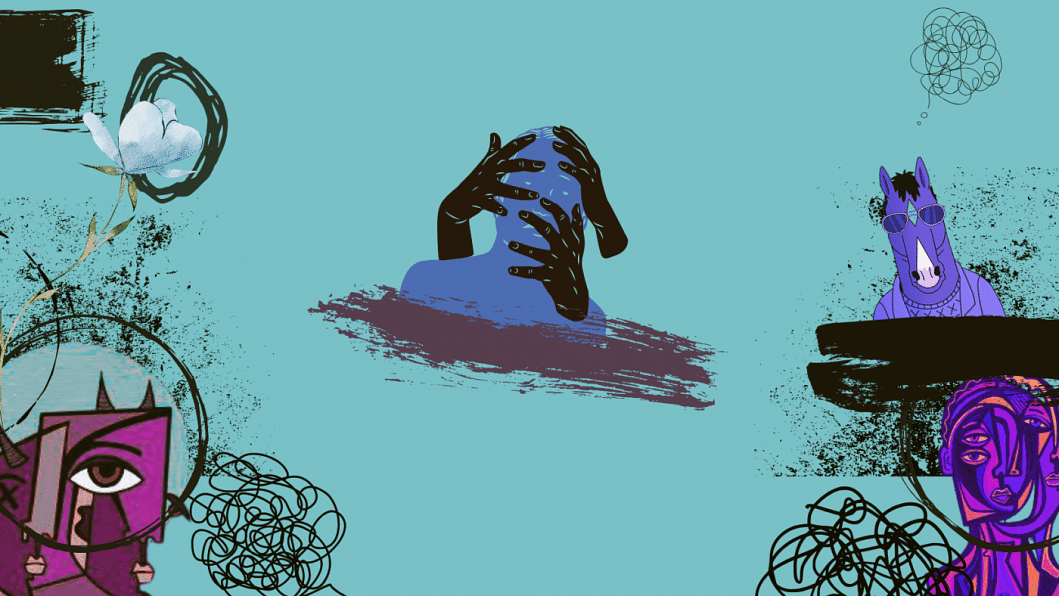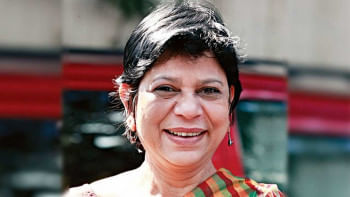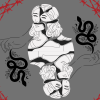A crossover episode with my depression

Picture this: it's an ungodly hour of the morning, and I'm stumbling out of my building after pulling an all-nighter for an exam. The gloomy morning sky and cold snaps are having this fascinating interaction with the circadian rhythm of my body, and the coffee in my empty stomach is doing the cha-cha. Just as I'm having one of those "What even is this life, man?" moments…
"Hey, that's life," draws a familiar voice—one belonging to everyone's favourite depressed, self-loathing, alcoholic horse. Classic BoJack Horseman, appearing like an existential crisis personified, ready to drag you into the depths of contemplation on just another weekday morning.
Ten years after its debut, BoJack Horseman remains less of a TV show and more of a gut punch wrapped in animal puns. In an era where talking animals could've been just another gimmick, this series chose violence—emotional violence, that is. It's the kind of show that makes you laugh, then makes you question why you're laughing, and then makes you question everything else about your life choices.
But more than that, it has become a lighthouse for those of us navigating the stormy seas of depression. Addressing the mental health struggles, the series chose authenticity—raw, uncomfortable, yet deeply validating.
The show's brilliant stroke was mixing humans and animals in a world where a horse can be a washed-up sitcom star and, somehow, that's the least bizarre thing about it. But here's the kicker: behind the cartoon facades and animal jokes lies a mirror so clear, it's uncomfortable. Every character is carrying enough emotional baggage to fill a cargo hold, yet they're still somehow functioning—just like us!
Through the characters, the show portrayed the symptoms we often try to hide—the random crying spells, the inability to get out of bed, the constant fatigue that no amount of sleep seems to fix—and none of these are character flaws. They're shared experiences, even if they're wrapped in fur and feathers.
Take Princess Carolyn, the feline agent whose life is a masterclass in "fake it till you make it," while simultaneously having an internal meltdown. Her perpetual hustle culture mentality isn't just a character trait, it's a perfect illustration of high-functioning depression, where we keep spinning plates while feeling completely hollow inside. When she tells herself, "You gotta get your shit together," it's the same mantra many of us repeat, thinking we're somehow failing at life while everyone else has it figured out. Well, that would be me too!
Then there's Diane Nguyen, the writer who can't seem to fit into the "rainbow muffin" version of happiness that society, especially her romantic partner Mr Peanut Butter, prescribes. Her journey with depression hits particularly close to home. When she sits in her flat, unable to write her "fun" book because the weight of existence feels too heavy, and ends up with a heavy memoir instead, it also serves as a validation. It's the show saying, "Hey, sometimes depression makes basic tasks feel impossible, and that's not your fault." Her struggle with medication, her resistance to accepting help, and her fear that treating her depression might change who she is—these aren't just plot points. They're real fears that many of us grapple with while suffering from depression.
But let's talk about our protagonist, the horse himself. BoJack Horseman isn't just another lead character of a show, he's the personification (or should I say horsification?) of our collective mess. He's that voice in our head that says, "Let's sabotage this perfectly good thing we have going," the 3am thoughts that keep us awake, and the endless cycle of trying to do better while being utterly terrified of change. This is where it gets truly personal to me.
Bojack is the embodiment of depression's most insidious lies: that we're fundamentally broken and that we don't deserve happiness. His cycles of self-destruction feel painfully familiar because depression isn't just sadness, it's a constant battle with self-worth, with motivation, with the very idea that things could get better.
What sets BoJack Horseman apart is how it normalises the full spectrum of depression's manifestations. The show tells us it's okay if your depression doesn't look like the commercials, where people just stare sadly out of windows in grayscale. Sometimes it's angry outbursts, sometimes it's numbness, and sometimes it's throwing yourself into work or relationships to avoid dealing with the void inside.
The series doesn't just acknowledge these experiences—it validates them. When BoJack spends days in his pool, when Diane can't write her book, when Princess Carolyn pushes herself to exhaustion—these are permission slips for viewers to recognise their own struggles and understand that they're not "broken" or "abnormal." These are human experiences (even when portrayed by animals).
The series' unflinching commitment to reality—despite being, you know, a cartoon about talking animals—also makes it raw and relatable. When that ottoman in BoJack's living room catches fire, it stays burnt in every subsequent episode—a brilliant metaphor for how our actions leave permanent marks on our lives and those around us. The show doesn't just touch on heavy topics; it belly-flops right into them while somehow maintaining its sense of humour. Depression, addiction, trauma, toxic relationships—it's all there, wrapped in animal puns and visual gags. It's like getting therapy, but your therapist is a cartoon horse who's probably more messed up than you are.
Made in the early 2010s, when streaming platforms were willing to take risks on quirky ideas, BoJack Horseman became more than just another adult animation. It pioneered a new kind of storytelling that proved animation could tackle serious issues without losing its comedic edge. In today's landscape, a show about a depressed talking horse dealing with existential dread might sound like a hard sell, but BoJack made it work. It showed us that depression isn't always dramatic breakdowns; sometimes it's just getting through another day, trying your best even when your best feels inadequate. The show's greatest gift might be its message that healing isn't linear. Some days you're Princess Carolyn, getting yourself together. Other days you're BoJack, floating in your pool, questioning everything. Both are valid, both are normal, and most importantly, both are temporary states, not permanent identities.
A decade later, the show's message still rings true: mental health struggles are part of the journey, and they're definitely not character flaws or personal failures. Life can be messy, people (and animals) are complicated, and sometimes the best we can do is keep swimming. Or galloping. Or whatever species-appropriate movement applies to you.
The genius of BoJack Horseman lies in its ability to make us laugh at our darkest moments while acknowledging their weight. As BoJack himself put it, "Life is just one hard kick in the urethra." But sometimes, watching a show about messy characters trying their best is exactly the comfort we need. In a world that often demands we put on a happy face and pretend everything's fine, BoJack Horseman stands as a mirror to the beauty of acknowledging our struggles, our failures, and our continuous attempts to do better, even when we keep messing up. And isn't that, after all, the way life is?
Back to that morning after my all-nighter, maybe hallucinating a conversation with BoJack Horseman isn't the worst way to start the day. At least he gets it. That's just, like, life, man—and I'm not alone in it.
Mahiya Tabassum is a member of the editorial team at The Daily Star.
Views expressed in this article are the author's own.
Follow The Daily Star Opinion on Facebook for the latest opinions, commentaries and analyses by experts and professionals. To contribute your article or letter to The Daily Star Opinion, see our guidelines for submission.

 For all latest news, follow The Daily Star's Google News channel.
For all latest news, follow The Daily Star's Google News channel. 











Comments